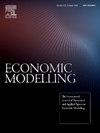得分市场:体育经济学理论与应用
IF 4.7
2区 经济学
Q1 ECONOMICS
引用次数: 0
摘要
有些组织可以被当作市场来分析,即使它们并不完全符合市场的规范定义。在本文中,我们介绍并从理论上定义了评分市场的概念,指的是由评分系统决定结果的组织。我们证明了这样的组织具有一个明显的特征:可达到的配置集合是离散的和不连续的。这一特性允许将概率直接分配给可行的配置,以及应用数值方法来确定特定的结果。得分市场出现在规范的市场、竞赛、选举和体育赛事中。体育经济学为说明和促进对得分市场的理解提供了一个引人注目的背景,特别是通过双边足球比赛。根据我们的理论框架,我们确定了欧洲足球协会冠军联赛小组赛阶段竞争平衡的潜在水平。我们计算了这些结果的概率,并将理论预测与从1999/2000年到2023/2024年每个季节观察到的八组中的每组的实际结果进行了比较。这种比较揭示了一个趋向于更大的点集中的总体趋势,对应于不太可能的理论配置,并表明竞争平衡的广泛下降。本文章由计算机程序翻译,如有差异,请以英文原文为准。
Scoring markets: Theory and application in sports economics
Some organizations can be analyzed as if they were markets, even if they do not precisely meet the canonical definition of one. In this article, we introduce and theoretically define the concept of scoring markets, referring to organizations in which outcomes are determined by a scoring system. We show that such organizations possess a distinct feature: the set of attainable configurations is discrete and discontinuous. This characteristic allows for the straightforward assignment of probabilities to feasible configurations, as well as the application of numerical methods to identify particular outcomes. Scoring markets arise in regulated markets, contests, elections, and sports events. Sports economics provides a compelling context for illustrating and advancing the understanding of scoring markets, especially through bilateral football competitions. Drawing from our theoretical framework, we identify potential levels of competitive balance in the group stage of the Union of European Football Associations Champions League. We compute the probabilities of these outcomes and compare the theoretical predictions to the actual results observed across each of the eight groups in every season from 1999/2000 to 2023/2024. This comparison reveals a general trend toward greater point concentration, corresponding to less probable theoretical configurations and indicating a broader decline in competitive balance.
求助全文
通过发布文献求助,成功后即可免费获取论文全文。
去求助
来源期刊

Economic Modelling
ECONOMICS-
CiteScore
8.00
自引率
10.60%
发文量
295
期刊介绍:
Economic Modelling fills a major gap in the economics literature, providing a single source of both theoretical and applied papers on economic modelling. The journal prime objective is to provide an international review of the state-of-the-art in economic modelling. Economic Modelling publishes the complete versions of many large-scale models of industrially advanced economies which have been developed for policy analysis. Examples are the Bank of England Model and the US Federal Reserve Board Model which had hitherto been unpublished. As individual models are revised and updated, the journal publishes subsequent papers dealing with these revisions, so keeping its readers as up to date as possible.
 求助内容:
求助内容: 应助结果提醒方式:
应助结果提醒方式:


